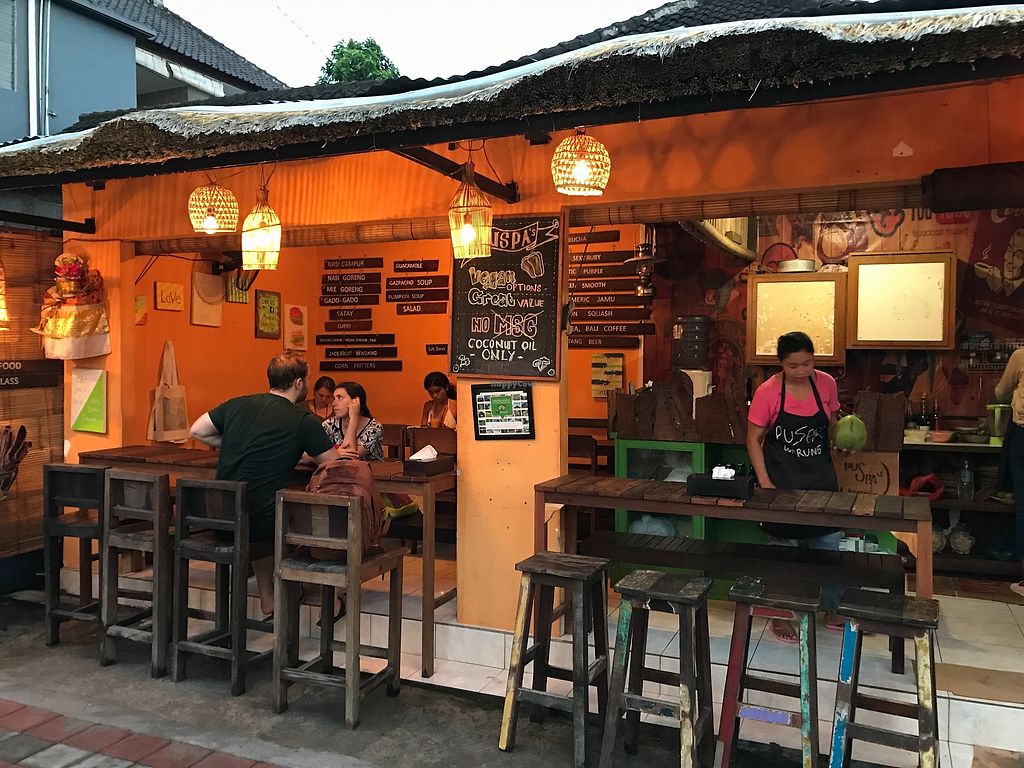Using English in Bali
Bali is a dream destination for travelers worldwide. But how far can you go using only English on this enchanting island?
As a nomad, traveling light is not just about packing, but also about acquiring the necessary skills to navigate through a foreign land. Language plays an essential role in this regard, and Bali is no exception.
English in Bali: A Lingua Franca?
Indonesia’s official language is Bahasa Indonesia, but Bali has its own native tongue, Balinese, spoken predominantly by the local population. However, due to the influx of international tourists over the years, English has become the unofficial lingua franca in the touristy areas. From the bustling streets of Seminyak to the serene shores of Nusa Penida, you can expect to find English speakers in most places that cater to visitors.

The Ubiquity of English
With Bali’s thriving tourism industry, it’s no surprise that the local population has adapted to the demand for English-speaking services. Many Balinese locals, especially those working in the hospitality and tourism sectors, have a good command of English. From hotel staff and restaurant servers to tour guides and taxi drivers, you’ll find that many people can communicate effectively in English.
Even outside the major tourist hubs, you’ll encounter English speakers, albeit to a lesser extent. The younger generation, in particular, is often well-versed in the language, thanks to the inclusion of English in the Indonesian education system.
Navigating Bali with English
For the most part, using English will be sufficient for foreigners traveling throughout Bali. You can easily book accommodations, arrange transportation, order food, and participate in activities without encountering significant language barriers. Additionally, most signs and menus in tourist areas are in both Bahasa Indonesia and English, making it easier for English-speaking visitors to navigate the island.
However, it’s worth mentioning that in more remote or less touristy areas, you might come across locals who are not fluent in English. In such cases, knowing a few basic phrases in Bahasa Indonesia or Balinese can be helpful. While it’s not strictly necessary, making an effort to learn a bit of the local language can go a long way in enhancing your travel experience and fostering meaningful connections with the locals.

Embracing Local Culture
While English is widely spoken and understood in Bali, immersing yourself in the local culture will undoubtedly enrich your travel adventure. By learning a few words and phrases in Bahasa Indonesia or Balinese, you’ll demonstrate respect and appreciation for the local customs and traditions. This gesture can open doors to unique experiences, friendships, and deeper understanding of Bali’s fascinating culture.
French and German in Bali
While English is the most widely spoken foreign language in Bali, it’s not uncommon to find locals who speak other languages, such as French or German, albeit to a lesser extent. The presence of these languages can be attributed to the various European tourists who have visited the island over the years.
In the popular tourist areas, you may come across some hotels, restaurants, and tour operators with staff who can speak French or German. This is especially true for establishments that cater specifically to French or German-speaking clientele. However, it’s important to note that the prevalence of these languages is significantly lower compared to English.
Bahasa Phrases For Bali
As a foreign traveler in Bali, knowing a few basic phrases in Bahasa Indonesia can be quite helpful and will make your interactions with the locals more pleasant. Here are some useful phrases to get you started:
Selamat pagi (se-LA-mat PA-ghee) – Good morning
Selamat siang (se-LA-mat SEE-ahng) – Good day (used from late morning until mid-afternoon)
Selamat sore (se-LA-mat SO-reh) – Good afternoon (used from late afternoon until early evening)
Selamat malam (se-LA-mat MA-lam) – Good evening/night
Terima kasih (te-REE-mah KAH-see) – Thank you
Sama-sama (SA-ma SA-ma) – You’re welcome
Maaf (mah-AHF) – Sorry
Permisi (per-MEE-see) – Excuse me (to get attention or when passing by)
Di mana (DEE-ma-na) – Where is…?
Di mana kamar mandi? (DEE-ma-na KAM-ar MAN-dee) – Where is the bathroom?
Apa kabar? (AH-pah KAH-bar) – How are you?
Baik (bah-EK) – Good/fine (response to “Apa kabar?”)
Nama saya (NA-ma sa-YA) – My name is…
Saya dari (SA-ya DA-ree) – I am from…
Berapa harganya? (be-RA-pa HAR-gan-ya) – How much does it cost?
Tolong (TO-long) – Please/help
Ya (YAH) – Yes
Tidak (TEE-dak) – No
Saya tidak mengerti (SA-ya TEE-dak me-NGER-tee) – I don’t understand
Bisa bicara bahasa Inggris? (BEE-sa bee-CHAR-a BAH-sa ING-gris) – Do you speak English?
These simple phrases should help you navigate your way around Bali and foster more positive interactions with the locals. Remember, even if your pronunciation isn’t perfect, Balinese people will appreciate your effort to speak their language, and it’s likely to enhance your overall travel experience.

Using only English as a tourist will be sufficient to travel throughout Bali. The island’s booming tourism industry has led to widespread English proficiency among the local population, making it easy for tourists to navigate their way around.






